Bloody Sunday
The bombing took place at a rally of a pro-Taliban party in Khyber Pakhtunkhwa on Sunday, a province that borders Afghanistan and faces a rapidly deteriorating security situation due to attacks from militant groups including the Pakistani Taliban and the regional affiliate of the Islamic State (IS) terrorist group.
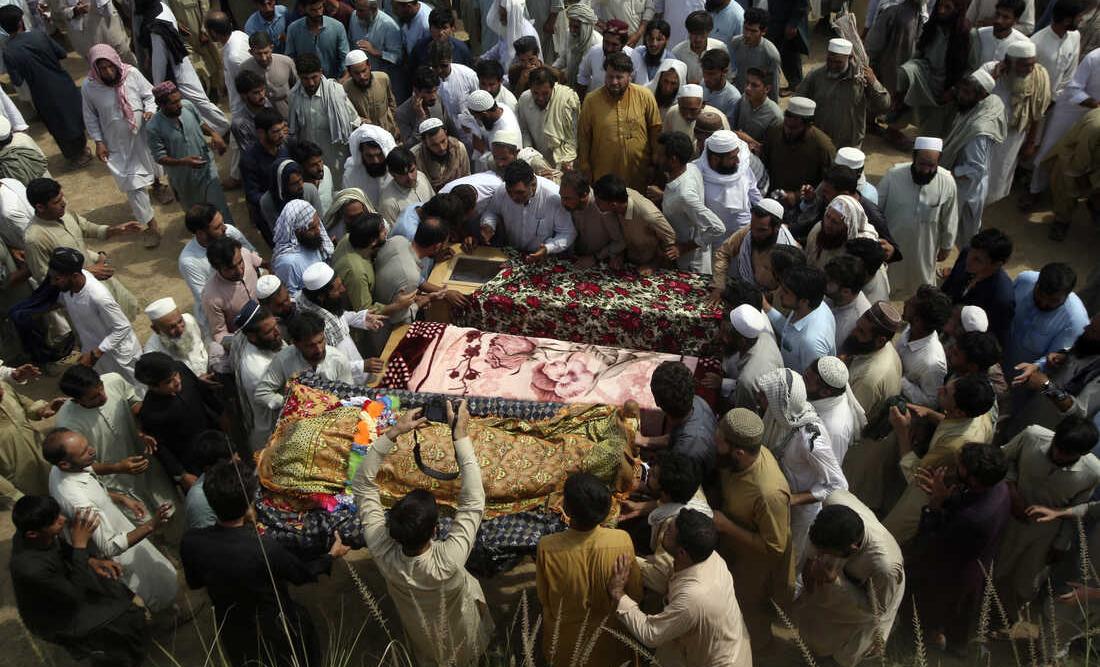
Relatives and mourners carry the coffin of a victim killed in Sunday's suicide bombing in Khyber Pakhtunkhwa, Pakistan. Photo: Guardian
More than 1,000 people attended the rally organized by Jamiat Ulema-e-Islam (JUI-F), an ultra-conservative Islamist party that is part of the ruling coalition and known for its close ties to the Afghan Taliban, and several regional parties.
Senior police officer Nazir Khan told NBC News that the religious political party JUI-F, run by Maulana Fazlur Rehman, organized the workers' conference in the town of Khar, the headquarters of Bajur District, an area traditionally home to tribal minorities.
Rehman is considered a pro-Taliban cleric and his party is part of the coalition government in Islamabad. It is not known whether Rehman was present at the time of the bombing.
But Maulana Ziaullah, the local leader of the JUI-F party, was among the dead. Authorities said 54 people had died. Doctors at local hospitals said they could not cope with the scale of the injuries, with about 200 people injured, and dozens had to be airlifted to other provinces for treatment.
The Islamic State (IS) Khorasan Province (ISKP) jihadist group claimed responsibility for Sunday’s attack. This was confirmed by IS’s Amaq news agency on Monday evening, which released a photo of the suicide bomber.
“A suicide attacker from the Islamic State… detonated his explosive vest in the middle of the crowd,” the news agency said.
ISKP, an IS affiliate based in Afghanistan, has declared itself an enemy of the Afghan Taliban, accusing the group of failing to impose a strict enough Islamic regime.
ISKP has been behind several recent deadly attacks targeting clerics, diplomats, and schools in Afghanistan. ISKP has also condemned and targeted the JUI-F for its links to the Taliban and the Pakistani government, accusing the JUI-F of betraying its Islamic principles.
The Pakistani Taliban, known as the TTP, were quick to deny responsibility for the bombing, with their spokesman stating that "such crimes cannot be justified in any way".
Violence escalates in border areas
The bombing was the latest violent incident in Khyber Pakhtunkhwa, a region that has suffered near-weekly militant attacks in recent months, mainly by TTP militants. The Pakistani military has struggled to control the situation in the border region.
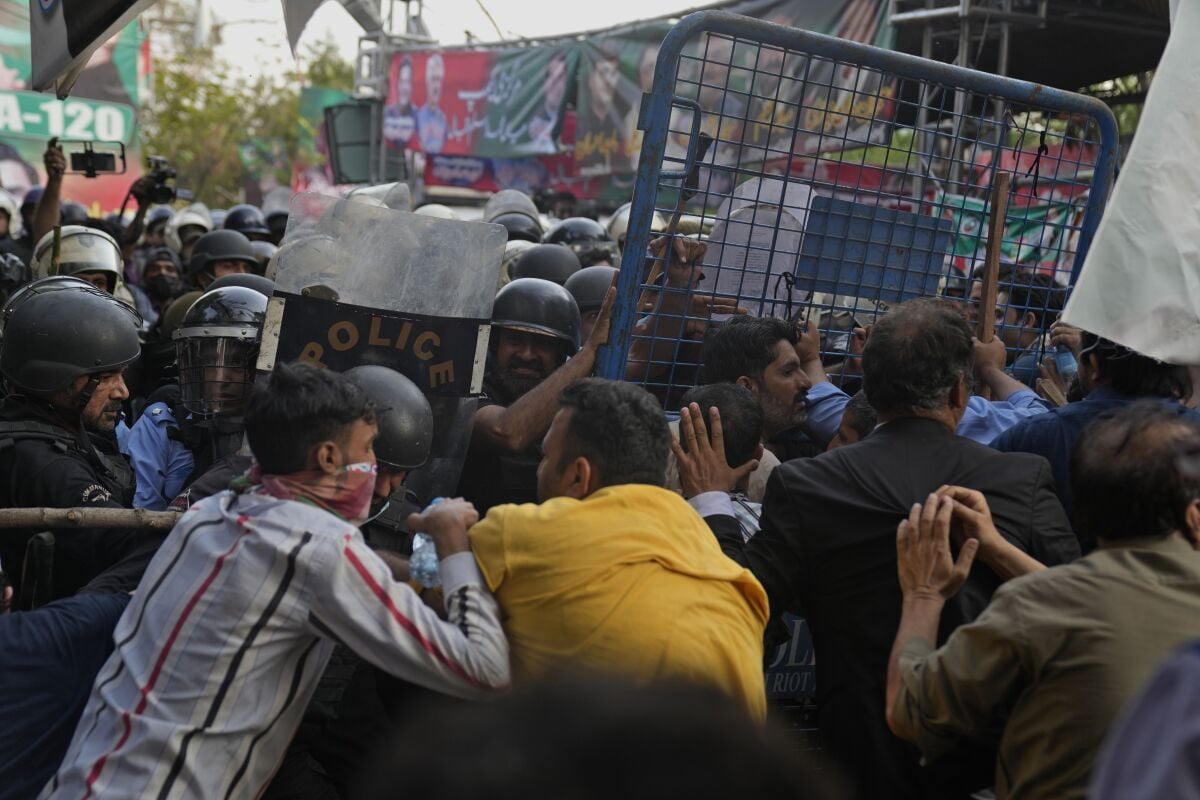
Protesters supporting former Prime Minister Imran Khan clashed with Pakistani security forces on March 15. Photo: Los Angeles Times
Under former Pakistani Prime Minister Imran Khan, hundreds of TTP militants were brought back from Afghanistan to Khyber Pakhtunkhwa as part of a rehabilitation programme for these elements.
Since then, Taliban militants have increasingly carried out attacks on police and army posts in the state. The most high-profile incident came in January when TTP militants killed more than 80 people in a suicide bombing at a mosque in Peshawar.
A US State Department report in March warned that the TTP and ISKP were increasing their presence in Khyber Pakhtunkhwa, with the TTP attempting to take over the state government and impose sharia law. ISKP was founded in 2015 but has only emerged as the leading jihadist force in the region in the past few years.
Zahid Hussain, a local political analyst, said ISKP had taken advantage of the growing instability in the border region to further establish its foothold in Pakistan. Hussain said it was a sign that Pakistan was facing militants on multiple fronts in the region, and the situation would continue to spiral out of control.
“The increased instability and militant attacks provide an opportunity for all jihadist organizations, including ISKP, to intensify their attacks,” said Zahid Hussain.
Risk of ruining the election
Many fear that these suicide bombings could trigger other bombings in the run-up to Pakistan's elections, which are due to be held in three months.
The concern is even greater as Pakistan continues to face serious political instability after the country's Election Commission issued an arrest warrant for former Prime Minister Imran Khan, who was removed as prime minister in a no-confidence vote in parliament in April last year.
Mr Khan was previously arrested by Pakistani authorities in May in connection with a corruption case that sparked deadly unrest across the country. The 70-year-old politician was later released on bail. Since his arrest, his supporters have staged protests in several parts of Pakistan and clashed with security forces.
In the context of the tense political situation in Pakistan, the suicide bombing in Khyber Pakhtunkhwa could be like a spark falling into the forest, creating a dangerous effect on the country's security at the time when political parties are campaigning for elections.
Hafiz Hamdullah, a senator and spokesman for the JUI-F party, said he had barely been present at the rally and was lucky to escape. The lawmaker strongly condemned the bombing, calling it a major failure of the Pakistani security forces and government.
But Hafiz Hamdullah insisted that JUI-F's political activities would not be stopped and the party would continue to prepare for Pakistan's general elections, scheduled for October. "These attacks will not stop us from gathering and participating in election rallies," he said.
Meanwhile, speaking hours before Sunday’s attack, Mohsin Dawar, a politician who heads Pakistan’s National Democratic Movement and is from Khyber Pakhtunkhwa, warned that Islamist extremism was at risk of spreading across the country. “This is a raging fire. It has to be put out now or it will burn everyone across Pakistan,” Mohsin Dawar said.
Nguyen Khanh (according to Reuters, Guardian)
Source


![[Photo] Prime Minister Pham Minh Chinh meets with the Ministry of Education and Training; Ministry of Health on the draft project to be submitted to the Politburo](https://vstatic.vietnam.vn/vietnam/resource/IMAGE/2025/3/25/c0e5c7348ced423db06166df08ffbe54)

![[Photo] Nhan Dan Newspaper Youth Union visits Vietnam Military History Museum](https://vstatic.vietnam.vn/vietnam/resource/IMAGE/2025/3/25/374e4f70a35146928ecd4a5293b25af0)


![[Photo] Head of the Central Propaganda and Mass Mobilization Commission Nguyen Trong Nghia received the delegation of Nhan Dan Daily](https://vstatic.vietnam.vn/vietnam/resource/IMAGE/2025/3/25/cdb71275aa7542b082ec36b3819cfb5c)
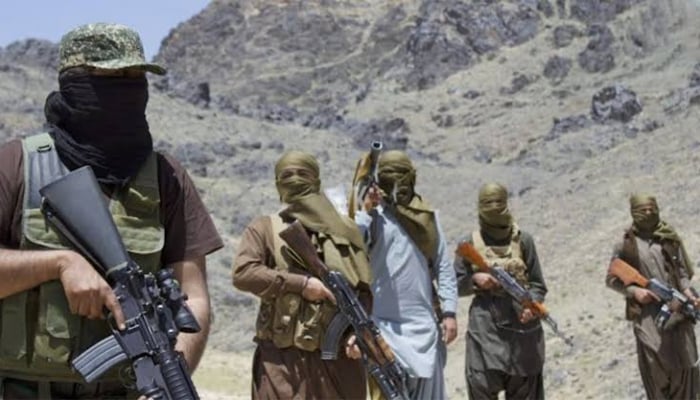
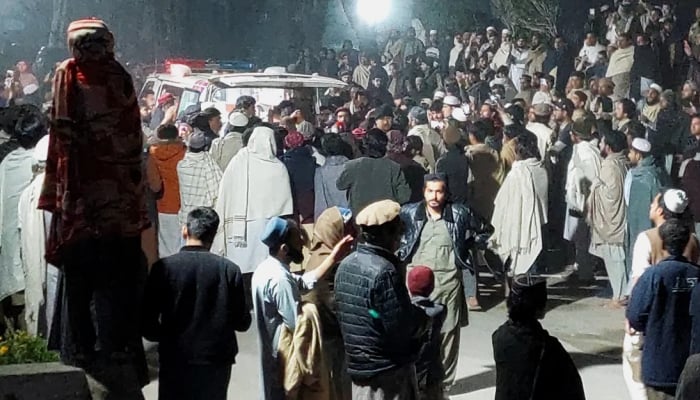



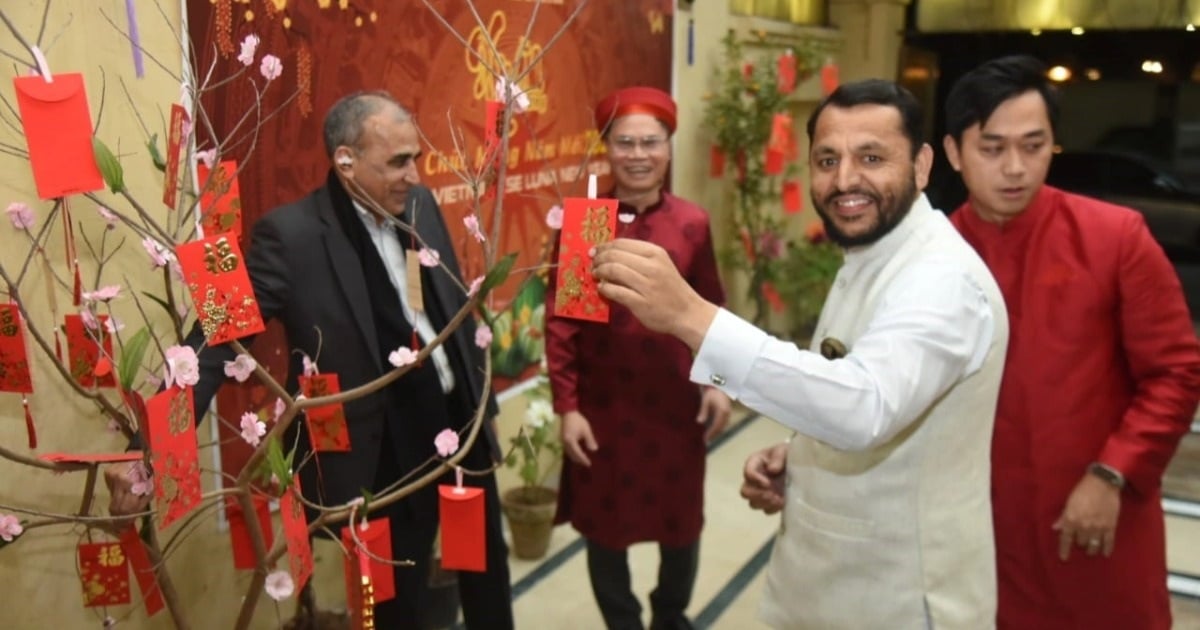

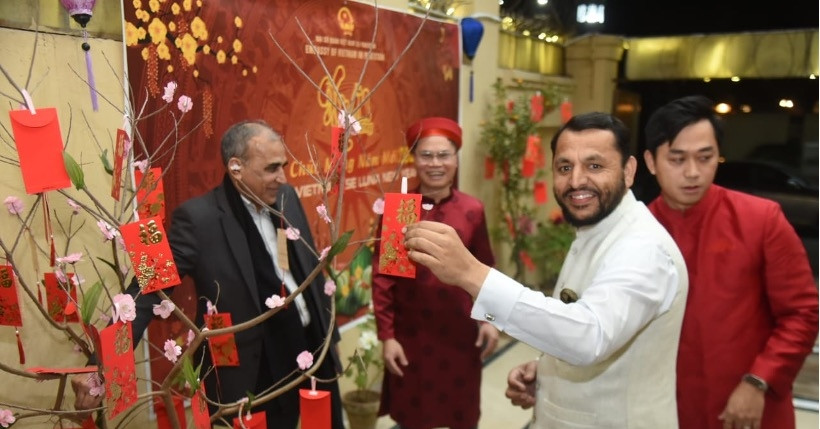
















![[Photo] General Secretary To Lam chairs the Standing Meeting of the Central Steering Committee on preventing and combating corruption, waste and negativity](https://vstatic.vietnam.vn/vietnam/resource/IMAGE/2025/3/25/839ea9ed0cd8400a8ba1c1ce0728b2be)
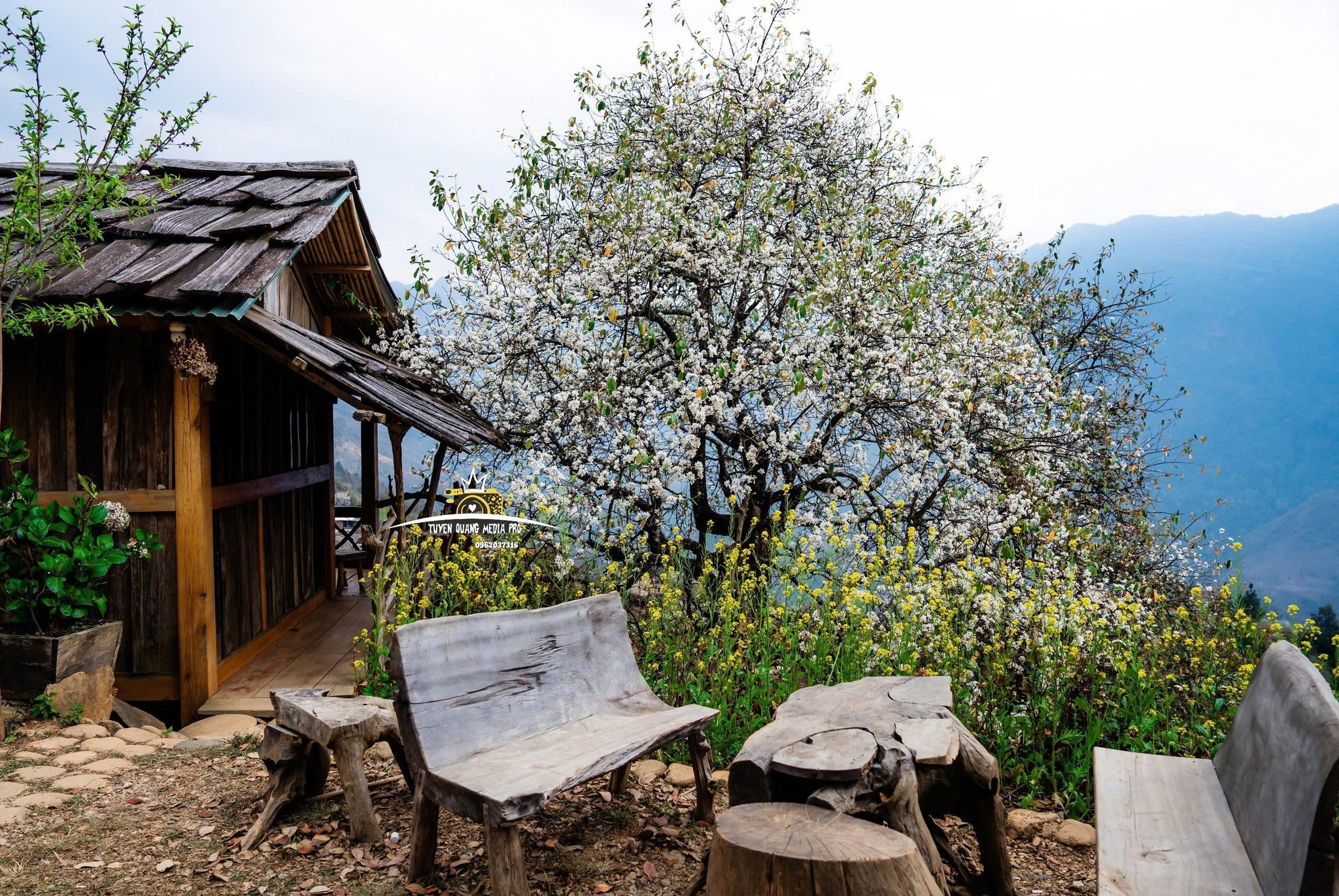










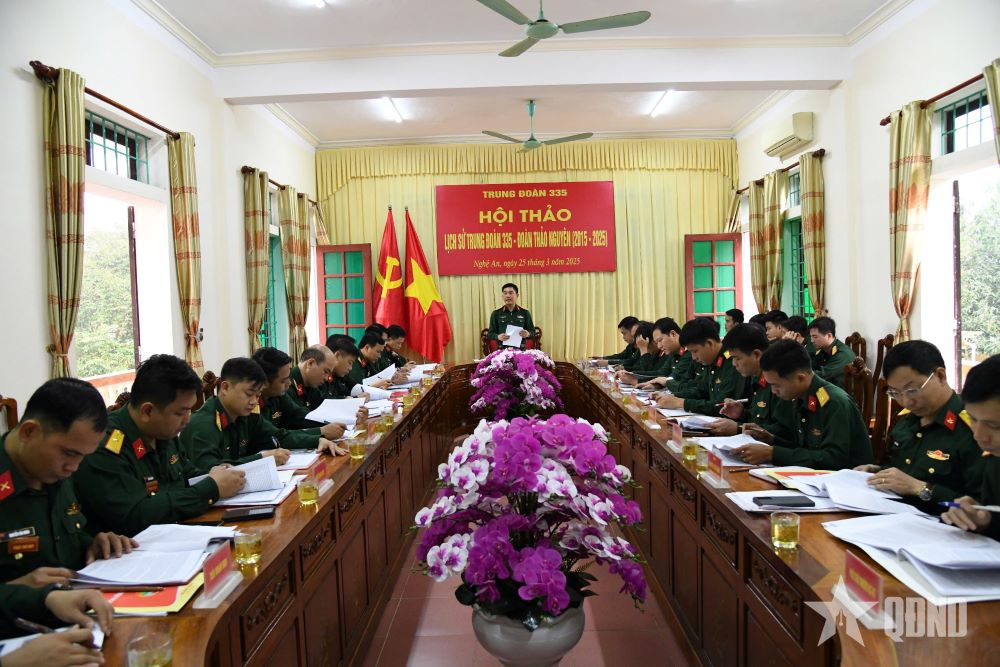



















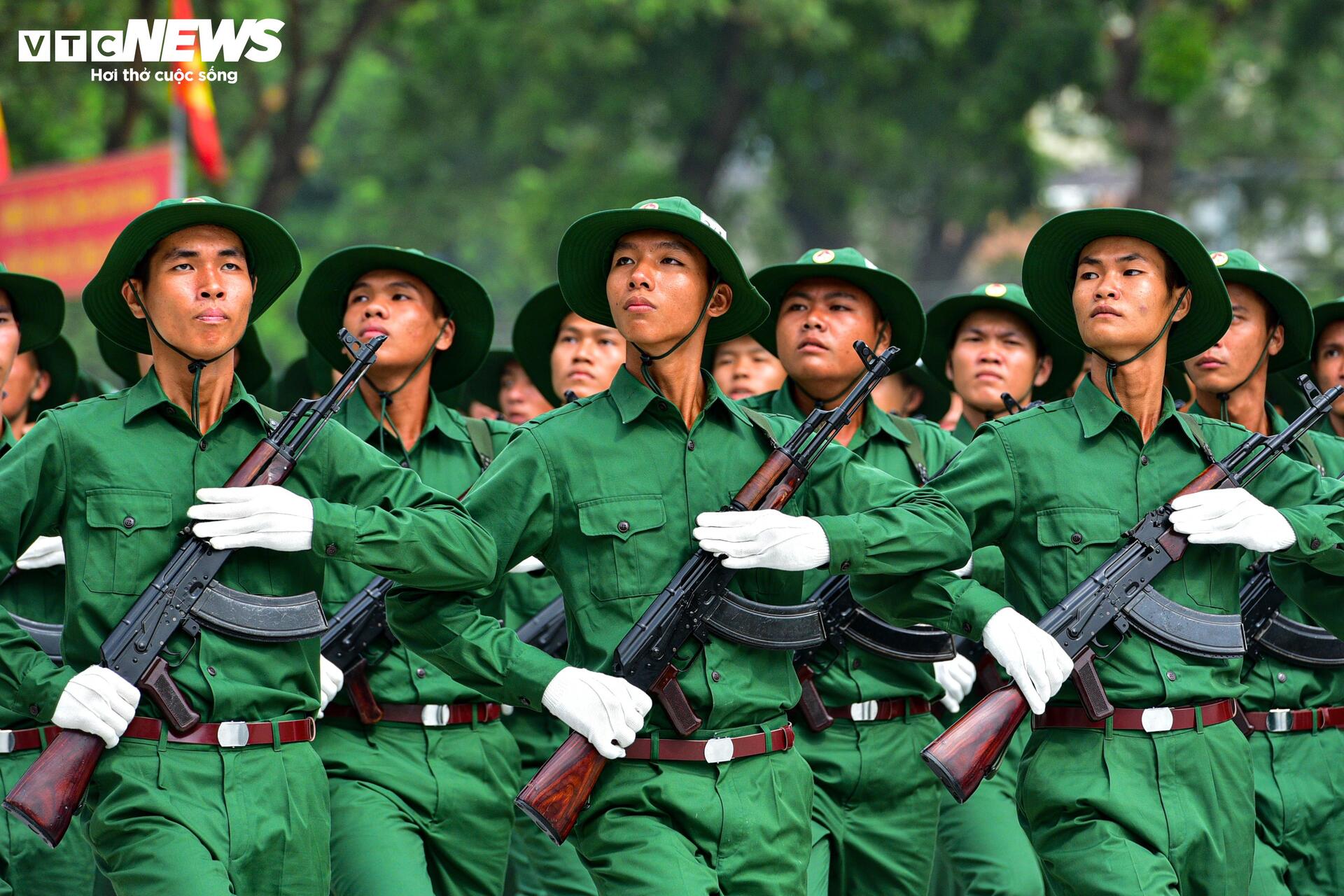


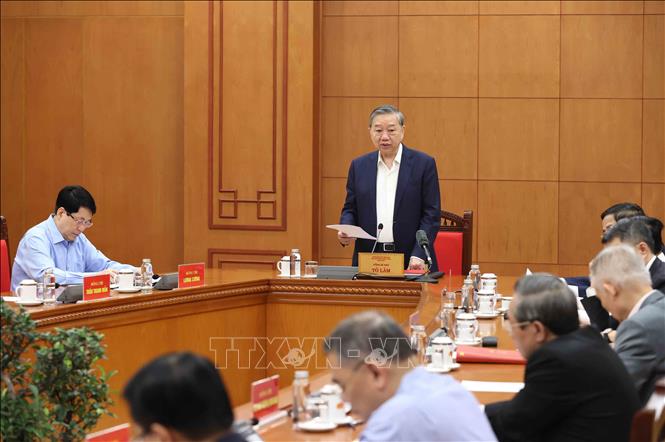

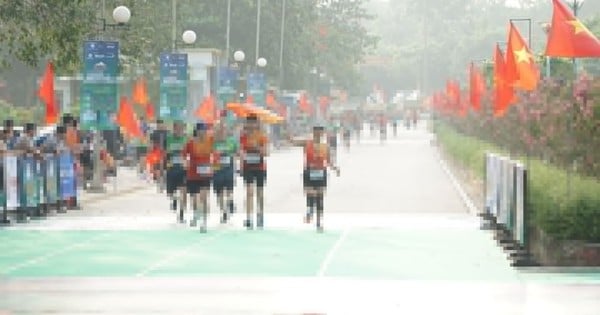





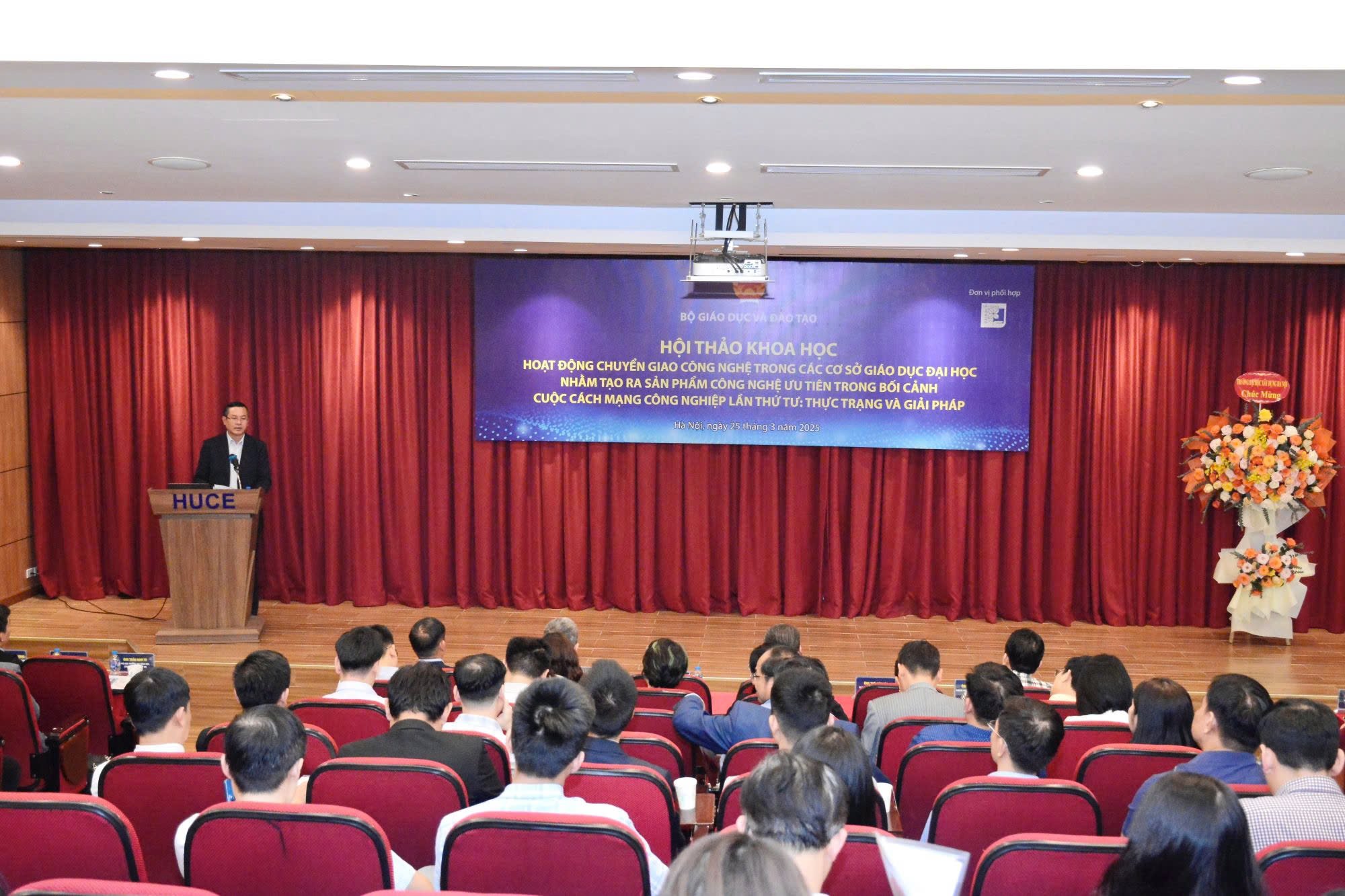



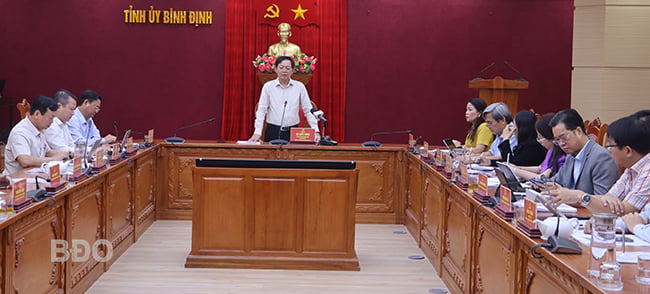
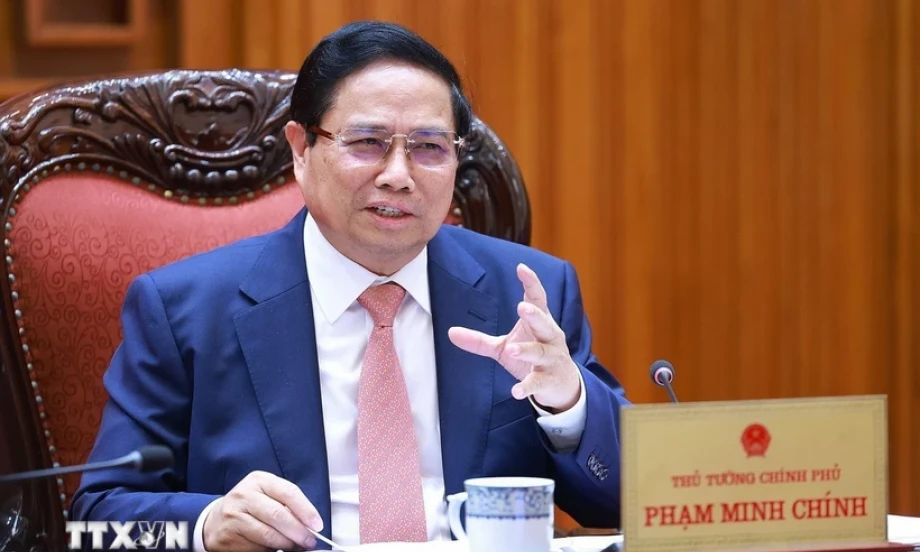
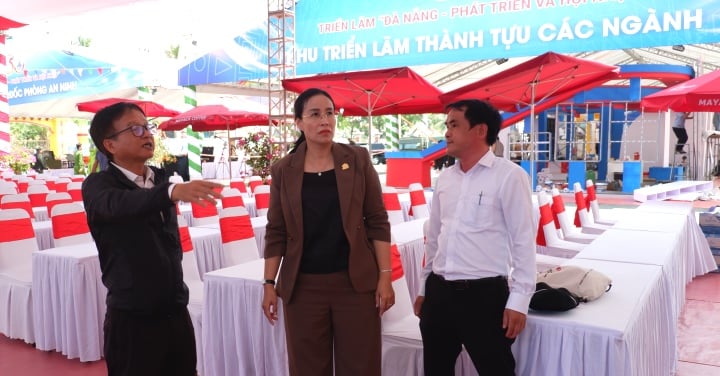
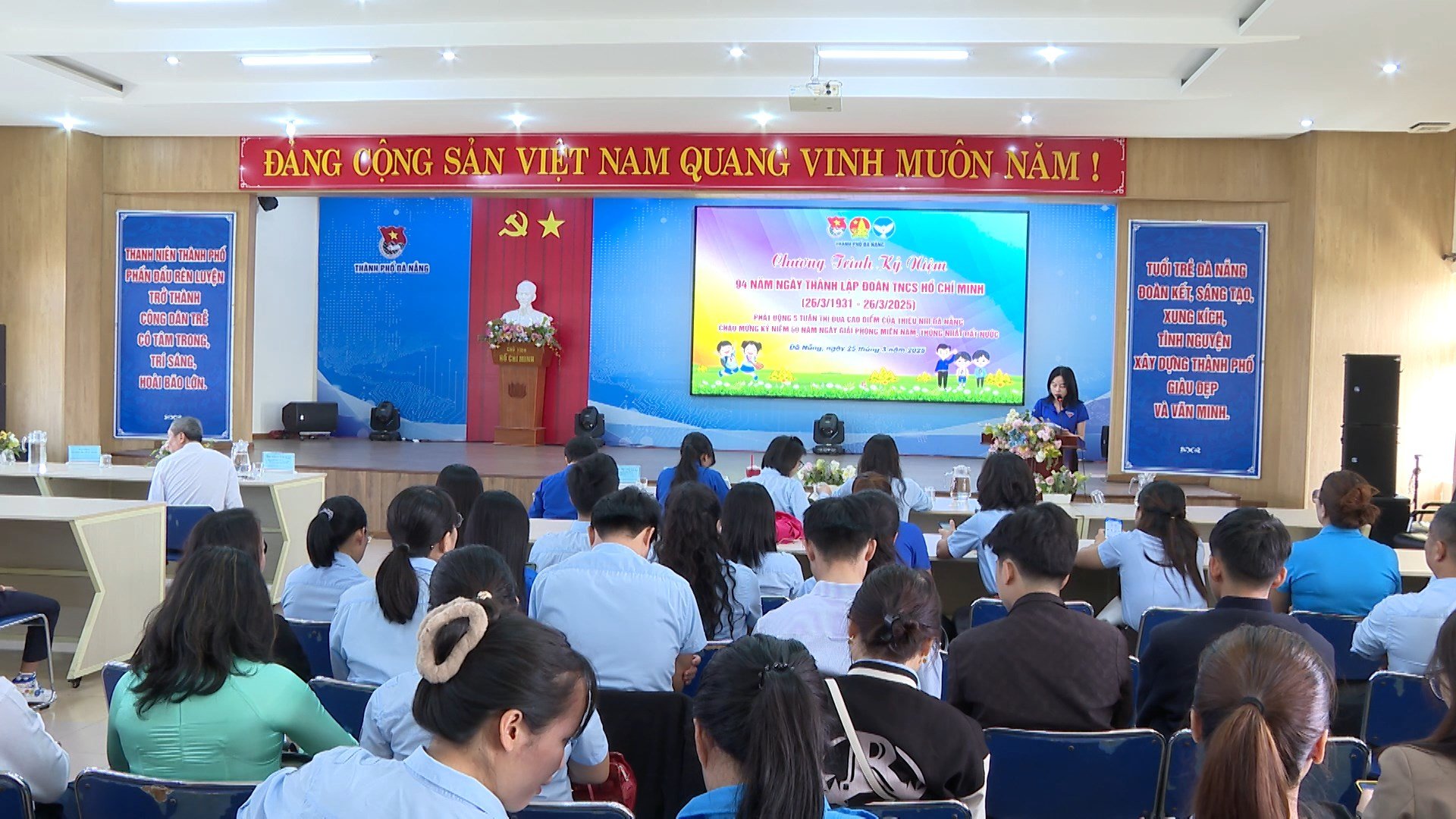










Comment (0)